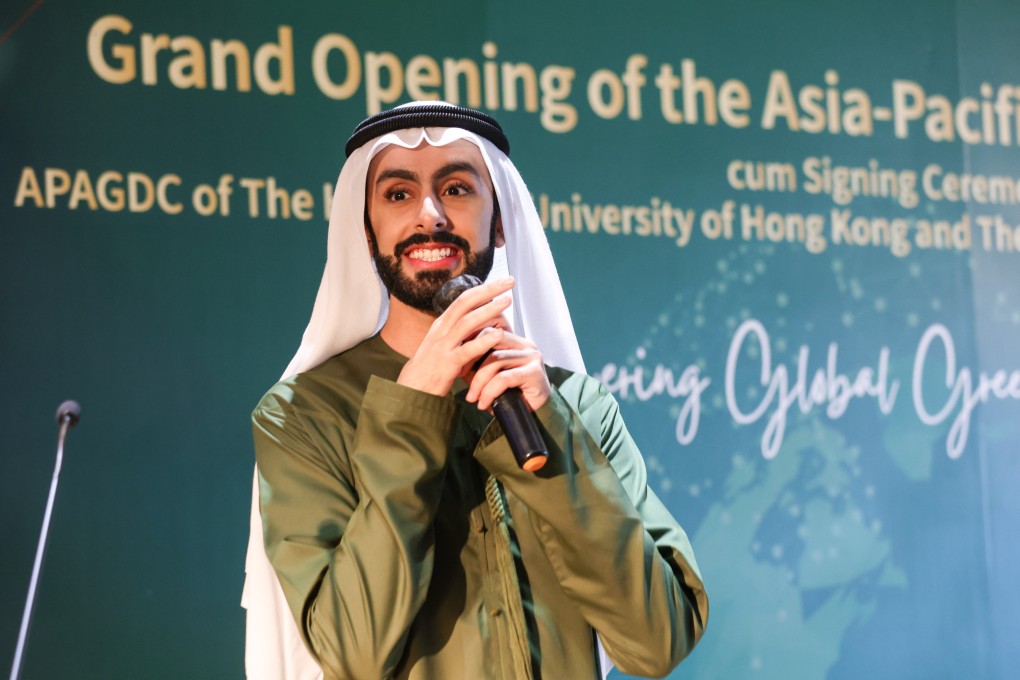Advertisement
Opinion | As Dubai prince saga shows, Hong Kong’s Middle East campaign needs work
- Hong Kong cannot hope to successfully engage with the Middle East if it does not thoroughly understand its economy, culture and politics
Reading Time:3 minutes
Why you can trust SCMP
3

Beneath the brouhaha over a Dubai prince’s high-profile plan to open a family office in Hong Kong is the city’s steely resolve to look for new economic drivers amid growing tensions between China and the West.
Advertisement
Before the headlines – over inauguration delays for Sheikh Ali Rashed Ali Saeed Al Maktoum’s US$500 million family office and his reported alter ego as singer-songwriter Alira – threw a spotlight on Hong Kong’s ambitions, there were two years of careful economic planning by Chief Executive John Lee Ka-chiu’s administration.
In 2022, Lee set a goal to attract 200 new family offices by 2025 through offering tax concessions. Last year, his administration focused its efforts on telling good stories of Hong Kong to investors in the Middle East. Clearly, Hong Kong is looking towards Dubai and other Gulf states to help maintain its status as an international finance hub.
Hong Kong’s eyes have traditionally been more focused on the West and mainland China. For decades, Hong Kong thrived by serving Western firms that wanted to invest on the mainland and Chinese firms seeking Western markets.
But this started to change with the outbreak of the US-China trade war and the deterioration of diplomatic and economic relations between China and the Western world. It forced Hong Kong to seek non-Western alternatives, in particular encouraging a pivot towards the Middle East, a focal point of China’s Belt and Road Initiative.
Advertisement
By repositioning Hong Kong as China’s superconnector to the world, the city has not only increased its engagement with the Middle East economically but also its educational and cultural exchanges.

Advertisement
